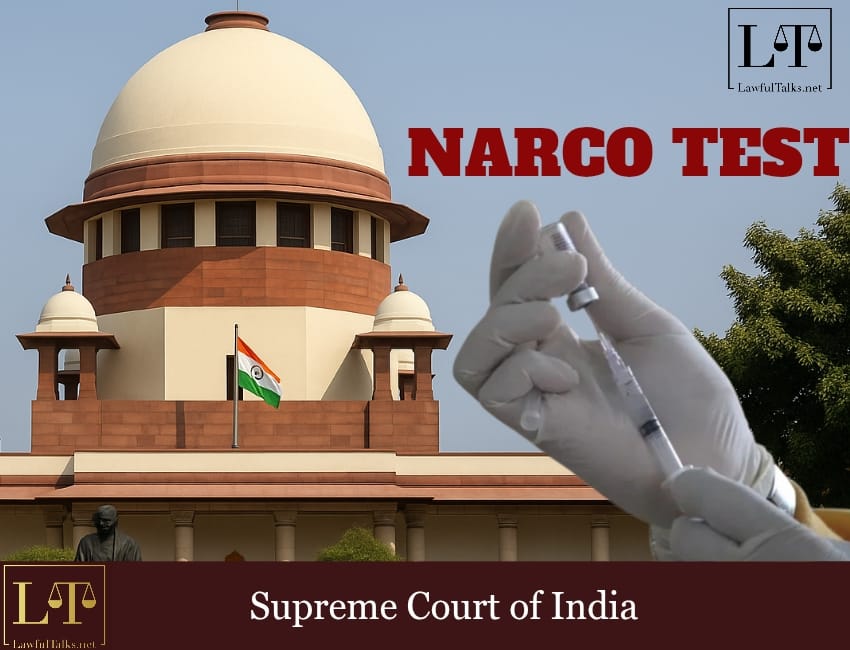Allahabad HC Sets Aside Afzal Ansari's Conviction, Allows Him to Continue as MP

The Supreme Court bench of Justice Sanjay Karol and Justice Prasanna B. Varale has set aside an order of the Patna High Court permitting narco-analysis of an accused (Appellant), particularly during the pendency of a bail application.

The facts of the case involve a missing woman whose disappearance from her matrimonial home was suspected to be a result of foul play by her husband (Appellant) and in-laws. Amidst the ongoing investigation, the Sub-Divisional Police Officer assured the High Court of her intent to subject all the accuseds and witnesses to narco-analysis tests. The High Court, while considering the husband’s bail plea, accepted this submission and, aggrieved by such acceptance of the submission, the Appelant filed the present appeal.
On perusal of the written submissions filed, the bench narrowed down to the following issues:
“i. Firstly, whether in the attending facts and circumstances, the High Court could have accepted such a submission.
ii. Secondly, whether a report of a voluntary narco-analysis test can form the sole basis of conviction in the absence of other evidence on record.
iii. Lastly, whether an accused can voluntarily seek a narcoanalysis test, as a matter of an indefeasible right.”
In regard to the first issue at hand, the Court held that the High Court’s acceptance of such a submission, especially in the context of a bail application under Section 439 of the CrPC, was legally untenable. Bail proceedings, the Court emphasized, are not mini-trials and certainly not the forum for authorizing intrusive investigative techniques that stand in direct conflict with the judgment of Selvi and Ors. v. State of Karnataka (2010) 7 SCC 263. The bench additionally reiterated the already settled law applied while entertaining bail applications, which is to take into consideration the allegations against the accused and not involve entering into a roving enquiry or accepting the use of involuntary investigative techniques and ultimately held that the High Court erred in accepting such submissions of conducting a narco-analysis test of all accused persons by the Investigating Officer.
Now moving to the second issue involving voluntary narco-analysis and whether it can form the sole basis of conviction in the absence of other evidence on record. Referring to its earlier decision in Selvi (supra), the Court noted that while voluntary narcoanalysis tests are permissible; the reports generated from such tests cannot be admitted directly into evidence. However, any information discovered as a consequence of such tests may be admissible under Section 27 of the Indian Evidence Act, 1872.
The Court reiterated that the evidentiary value of information obtained under Section 27 is well-settled, that a conviction cannot rest solely on information obtained through Section 27 without corroborative evidence.
Accordingly, the Court held that a voluntary narcoanalysis test report, even when conducted with adequate safeguards, or any information derived therefrom, cannot by itself form the sole basis for convicting an accused. The second question was, therefore, answered in the negative.
Adverting to the final issue, the court observed the divergence of views taken by various High Courts. On one hand, multiple High Courts have held that an involuntary narco-analysis test cannot be relied on and have taken an overall view of the circumstances when an accused has sought a narco-analysis test himself. In contrast, there is Rajasthan High Court, which, in Sunil Bhatt v. State 2022 SCC Online Raj 1443, held that the accused can seek a narcoanalysis test at a relevant stage in view of the statutory right to lead evidence in defence under Section 233 of the Criminal Procedure Code. Thus, again, keeping Selvi (Supra) in mind, the Court observed that the accused has a right to voluntarily undergo a narcoanalysis test at an appropriate stage. It was further clarified that the appropriate stage for conducting such a test would be when the accused is exercising the right to lead evidence during the trial. However, the Court emphasized that the accused does not possess an indefeasible right to undergo narcoanalysis. Upon receiving such an application, the concerned Court must consider the totality of circumstances surrounding the case such as the free consent of the accused and the presence of appropriate safeguards, before authorizing the conduct of a voluntarynarcoanalysis test.
Thus, after due consideration, the bench was of the firm opinion that the High Court order can not be sustained and directed that bail application of the Appellant, pending if any, to be decided in accordance with law
Case Title: Amlesh Kumar v. State of Bihar., Crl.A.@ SLP(Crl.)No.5392/2024
Amicus Curiae:Mr. Gaurav Agarwal, Sr. Adv. Mr. Manan Garg, Adv.
Advocate For Petitioner(s): Mr. Mithilesh Kumar Singh, AOR Mr. Ashutosh Kumar Singh, Adv. Mrs. Manju Singh, Adv.
Advocate For Respondent(s): Mr. Anshul Narayan, Addl. Standing Counsel, Adv. Mr. Prem Prakash, AOR

Akshaj Joshi
Law Student
Latest Posts
Categories
- International News 19 Posts
- Supreme Court 352 Posts
- High Courts 366 Posts




























































































































































































































































































































































































































































































































































































































































































































































